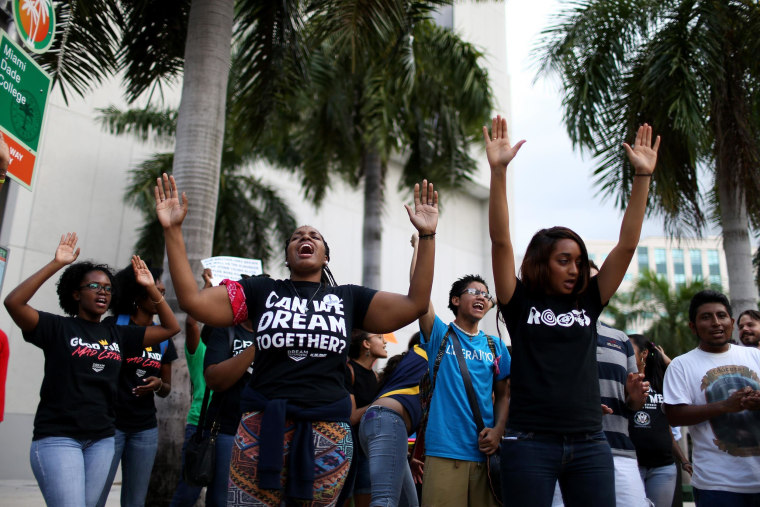African-Americans fatally shot by police were twice as likely as whites to be unarmed according to a new report on racial bias in policing.
The report, A Bird's Eye View of Civilians Killed by Police in 2015, published Wednesday by the American Society of Criminology, analyzed 2015 fatal police shooting data compiled by the Washington Post. Looking at 990 fatal shootings, it was found blacks were more than twice as likely to be unarmed than whites. Other minorities, including Latinos, who were fatally shot were less likely to pose a threat than whites.
Justin Nix, an author of the study and Criminal Justice Professor at the University of Louisville said the Washington Post data confirms implicit bias in policing.
“Earlier research shows people are biased to minorities,” Nix said. “This gives a better understanding of fatal police shootings in a real setting and not just in experimental studies.”
Until recently, the government has not collected much on fatal police shootings. Data has been gathered by outside criminal justice reform organizations and news organizations like the Washington Post and The Guardian.
In October 2016, the Department of Justice announced it would start collecting data on the interactions of police officers and civilians, including use of force, officer-involved shootings, and in-custody police deaths.
Related: Chicago Police Department Routinely Violated People’s Rights, Feds Say
Nicole Gonzalez Van Cleve, criminologist and author of Crook County: Racism and Injustice in America's Largest Criminal Court (and NBCNews.com columnist), said that this report along with the Department of Justice’s recent report on the Chicago Police Department’s use of excessive force highlight the “dangers blacks and minorities are facing with the police.”
Gonzalez Van Cleve said that this glimpse of discrimination that minorities can face only “scratches the surface” of the types of bias that exist in the criminal justice system.
“Implicit bias is an unconscious form of racism. People use the word because they’re afraid to use the word 'racism,'” Van Cleve said. “You can’t be afraid to talk about police cultures that are seeping with racism. Use of deadly force is only one bias, it’s a cascading effect.”
Related: Blacks in Blue: African-American Cops React to Violence Towards and From Police
Gonzalez Van Cleve also said the report is a “national snapshot” of what’s happening in communities and opens the door for conversations to take place beyond studies done in a simulated environment.
Sam Singyangwe also believes the new report “adds further explanation that racial bias exists in the criminal justice system,” but that it’s nothing new. The 2017 NBCBLK28 honoree has been fighting systemic racism by collecting police shooting data through his organizations Campaign Zero and Mapping Police Violence Project. Through data analysis, he has come up with solutions that could end police violence through the “Use of Force Project.”
The report also recommends policies that could reduce implicit bias within police departments and build trust among communities: Eliminating conversations that involve racial stereotypes and innuendos, police-sponsored community events such as "block parties" that create positive interactions with citizens, procedural justice training, using body-worn cameras, and implementing a national database to monitor all use-of-force incidents instead of just police shootings.
In 2014, in a response to the shooting death of Michael Brown, President Barack Obama established the 21st Century Task Force on Policing, which consisted of law enforcement officers and activists who made recommendations for community policing reform.
In his candidate questionnaire from the International Association of Chiefs of Police, President Donald Trump called for crime reporting but stated that “the federal government should not be in the habit of demanding data from local or state law enforcement organizations.”
As part of his strategy to fight crime, Trump signed three executive orders Thursday, including one that allows new Attorney General Jeff Sessions to identify and prosecute crimes against police officers. Civil rights advocates are concerned that Sessions will undercut protections of minority communities.
Singyangwe and other social justice advocates are concerned about whether the DOJ will continue to implement the initiative for data collection on police shootings announced under former Attorney General Loretta Lynch.
“I’m doubtful the government will continue the data progress done under the Obama Administration,” Singyangwe said. “We have enough data to make changes. We don’t need further action on data collection, it’s time to start putting solutions in place.”
